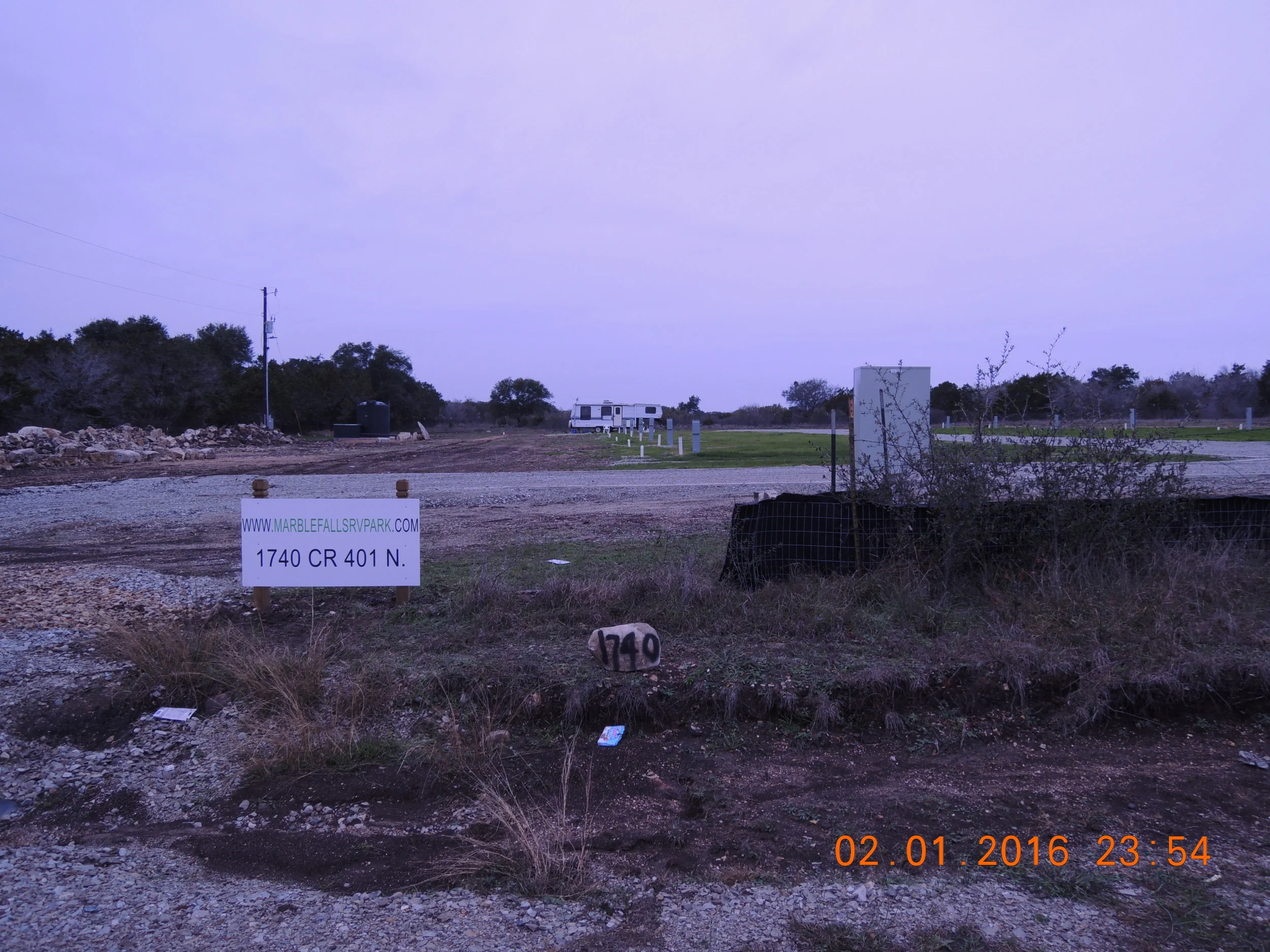Kerrville, pronounced cur-vil, is about an hour and a half away from Marble Falls. It’s a tourist draw because the Guadalupe River runs right through it; it hosts the Texas Arts and Crafts Fair; and it’s home to the Kerrville Folk Festival.
“I hear there’s a four-mile walk along the river that’s nice,” David tells me.
A walk by a river sounds good. I’m busy pondering many important matters, so I leave David to plan the excursion. We pull out of the driveway at eight-thirty. I drive because that’s the way we do it—I drive going, David drives returning. The route is simple—281 toward San Antonio, right on 290, left on 16. We reach Kerrville at ten. We know the exact time because Kerrville seems to be a place of chimes and bell towers, all of which ring on the hour. It’s quite noisy.
“Where is this walk?” I ask as we pass under I-10.
“Oh,” David says, “I just figured we’d drive around until we found it.”
“This place has a population of over 22,000.” I know this because we passed the sign about a half-mile back. “I just drove an hour and a half to get to a specific location and now I find out we haven’t got a clue where it is.”
Irritated, I turn into an empty pitted lot. We pull out our phones, call up the maps, find our blue dots, and look in all directions for the Guadalupe River. We can’t find it anywhere.
“It doesn’t exist,” I say. “Where did you hear of this river? Who told you this wild tale of a river in Kerrville?”
“Seriously, I think we’ll find it by driving through town.”
With a derisive snort, I pull back on to the busy street. Drive through town. What kind of a weak-ass plan is that? More often than not, not knowing means getting lost.
Pretty soon strip malls give way to gracious buildings; and a courthouse, surrounded by a commercial square, rises up on our left. As with most of the Hill Country towns we’ve explored, the square offers trendy restaurants and art galleries, which we’ll check out later, after we have our stroll along the shore of the imaginary river. To my surprise (at this point my expectations are low) a sign at the next intersection indicates a river walk. We cross the bridge, and there it is, just to the right—a lovely broad park with playgrounds and picnic areas, footbridges across calm water.
“Why wasn’t it on the map?” I am truly flummoxed. If I can’t trust the map on my phone, what can I trust?
I park. We do the walk. Blue sky, clear water trickling over stones, well-maintained walkway, unseasonably warm. While pleasant, the only feature that stands out in any way is the restroom. I have never seen a cleaner restroom in a public park, so impressively pristine that I take a picture.
We walk in one direction for forty-five minutes, then turn around. We’re hungry. I steer the car back toward the square, where there are many bustling lunch venues. We choose The Legendary Hill Country Cafe, famous because it’s located at the site of the first HEB. People of Texas know how stupendous this is. For people from elsewhere, I’ll simply define HEB as the best grocery store chain since the beginning of time. David requests liver and onions, and I order off the sides menu—fried okra and a scoop of cottage cheese.
After lunch I insist on hitting the Antique Mall across the street. I don’t know why I enjoy Antique Malls the way I do. I’m fascinated with old stuff, helplessly compelled to meander through and gawk. David’s usually a good sport about it. I purchase a snub-nosed pitcher, a clever item for pouring. I don’t know how I’ve lived without it. I’ll post a picture.
On the way back, I feel it’s my duty to entertain David as he drives. I regale him with a list of the cars my family had when I was a child.
“A yellow Oldsmobile. That’s what we had when I was born.”
“You can’t possibly remember the car your parents drove when you were born.”
“They told me about it. I saw pictures.” We’re on a stretch that doesn’t allow passing. The speed limit’s seventy, and ten cars ahead a Toyota, going fifty, holds up traffic. “We also had a Studebaker at one time. And a Goliath.”
“I’ve never heard of a Goliath.”
“The Buick, a Rambler, a Nova, a Charger. Daddy had a VW bus, then an Econoline. Then he got that Chevy pick-up that he kept forever.”
Talking about the string of cars makes me miss my mother. There was a time when she would have reminisced, shared experiences about all those cars, why we got them in the first place, and why we got rid of them. Each car would have provoked an entertaining story. She would have remembered cars I've forgotten. But she hasn't been capable of having a conversation in years. There's no memory of anything in her head. She is an empty vessel clunking her walker around in my sister's house.
David's happy by the river.
Seriously, the cleanest public toilet ever.
Everybody needs one of these, and it was only three dollars.
A great place to grab lunch next time you're in Kerrville.
















